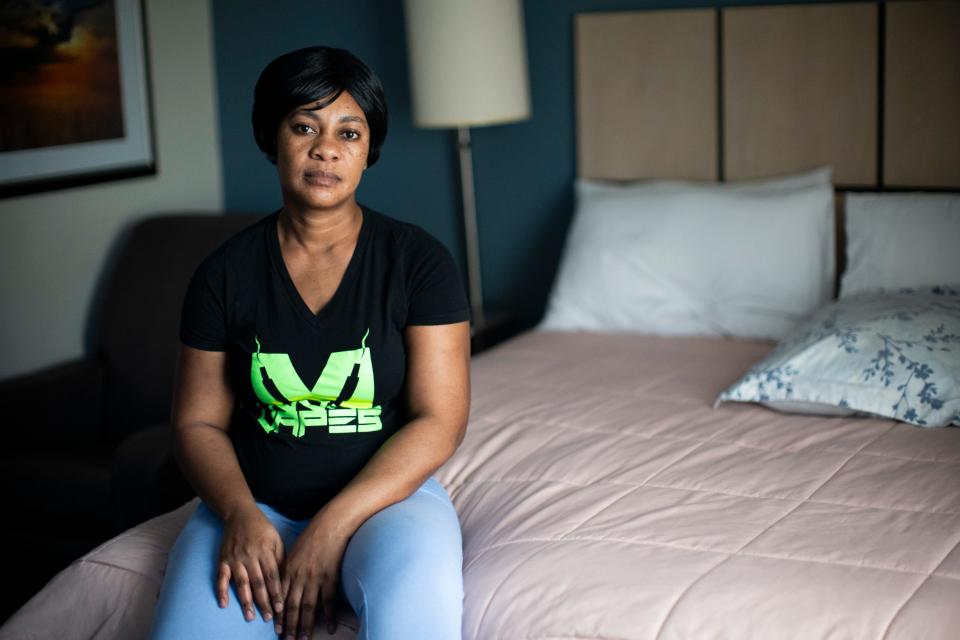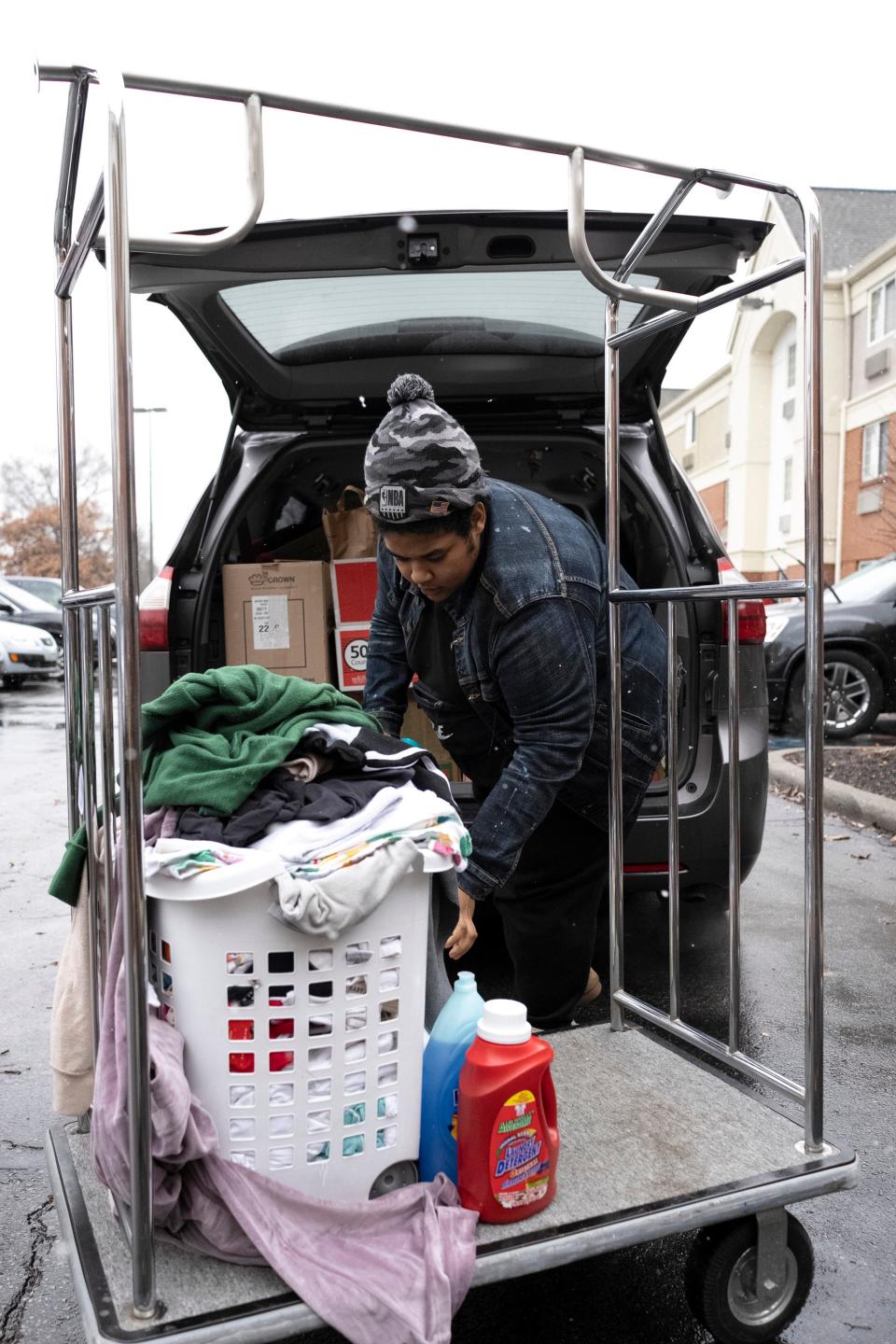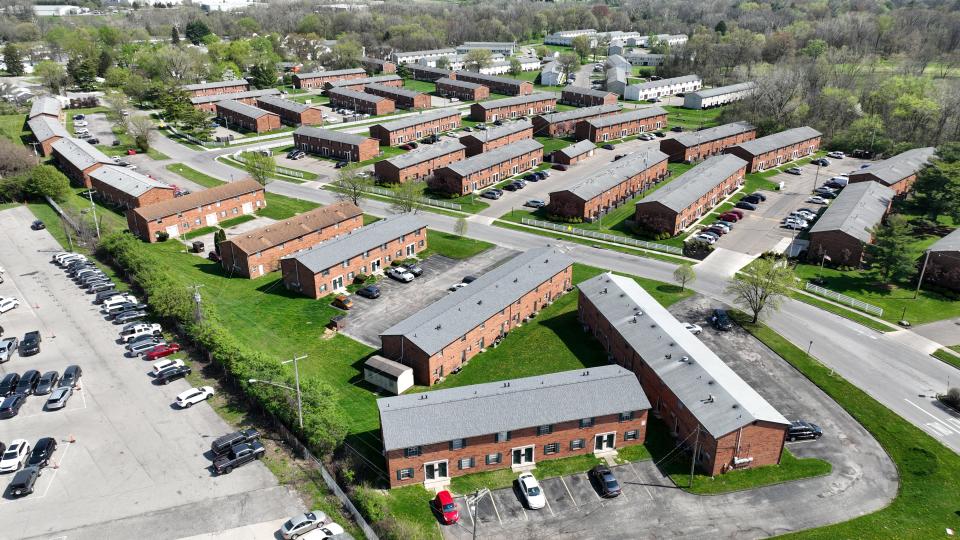Landlords of problem Columbus properties could be on the hook for tenants' relocation costs
After being socked with multimillion-dollar bills for helping stranded tenants find new housing after code violations caused the recent closure of large apartment complexes, Columbus City Council on Monday approved new tools to pry reimbursement out of the property owners.
"Over the last year, our community has faced two of the worst examples of landlord neglect that the city of Columbus has ever witnessed: Colonial Village and Latitude Five25," City Councilmember Shayla Favor said in a Monday afternoon press briefing at City Hall.

City taxpayers have shelled out more than $9 million to relocate residents from the two complexes alone.
The two dilapidated complexes combined forced a couple thousand tenants to relocate when the city found them unsuitable for habitation due to issues like no hot or running water, heat, and/or various safety issues.

Under the three ordinances unanimously approved by Council, a property owner who leases out space to a tenant shall be responsible for reimbursing the city's actual costs to relocate that tenant if it was due to a code violation that resulted in an emergency vacate order, a code violation that caused the tenant to voluntarily vacate, or any condition that was the owner's responsibility that a judge finds caused the resident to vacate.
The city wants to send property owners the message that "this behavior will not be tolerated," Favor said. "...Today marks another pivotal step."
If the displacement is temporary and the problems are fixed, the landlord is on the hook for up to three months of reasonable and necessary housing costs. If a unit can't be reoccupied, the tenant is due a cash payment from the landlord equal to three times the monthly fair market rent, based on a federal formula that takes into account the size of the household. If the landlord doesn't pay, the city will — and then go after the landlord in court for reimbursement, officials said.
There are a few, often out-of-state but impactful landlords who "don't care about their tenants," said City Attorney Zach Klein. "They don't want to invest the money. They're OK cashing the check on the 1st, but they won't take any of that money and dump it back into the buildings and into the tenants' quality of life."
The code change legislation approved Monday by Council "legalizes the process for us to recoup the (relocation) costs, and puts the burden — the financial burden — where it belongs, and that's on the landlord, not the taxpayer," Klein said.
The new code doesn't apply to landlords whose buildings are up to code, but applies to landlords who issue mass-vacate orders at the expiration of leases in order to gut and rehab units, Hannah Jones, deputy director with the Department of Development, told The Dispatch. Those types of tenant vacate orders have increased since the spring, with at least two high-profile cases: Sandridge Apartments and Riverview Drive.
Both situations have tossed tenants into one of the tightest Columbus housing markets in generations, characterized by a general lack of affordable units.

In addition to the relocation-cost legislation, Council also passed two other ordinances creating "registries" for vacant and foreclosed units. Being forced to notify the city when a foreclosure happens or a house sits vacant — the bank or owner must register them — helps code inspectors to better stay on top of their conditions. The units also must pay an annual fee (the amounts of which haven't yet been set), which it is hoped will encourage owners to sell or rent them to the public rather than sit vacant.
In other business Monday, Council President Pro Tem Rob Dorans announced a series of meetings through the end of July that puts the city on track to pass an amended version of its "Zone In" zoning overhaul.
The first important date is Thursday, July 18, when Council will release to the public its amended version of Zone In, Dorans said, while not indicating what amendments were made to Mayor Andrew J. Ginther's version of the massive zoning change to about 12,300 parcels on major arterial roads spanning out from Downtown.
Ginther and Dorans plan to hold press conferences on July 22 to discuss the final plan. Two days later, on July 24, the final public hearing will occur.
That would put the plan on course for a vote by City Council on July 29, the last meeting before councilmembers recess for August.
@ReporterBush
This article originally appeared on The Columbus Dispatch: Council passes three ordinances targeting landlords and housing owners

